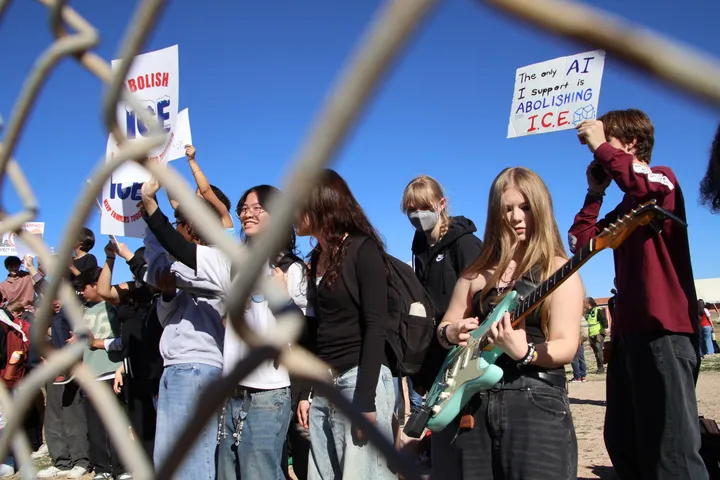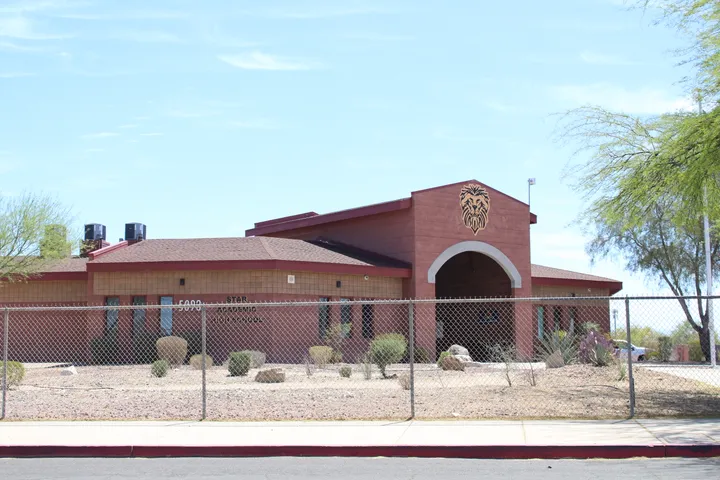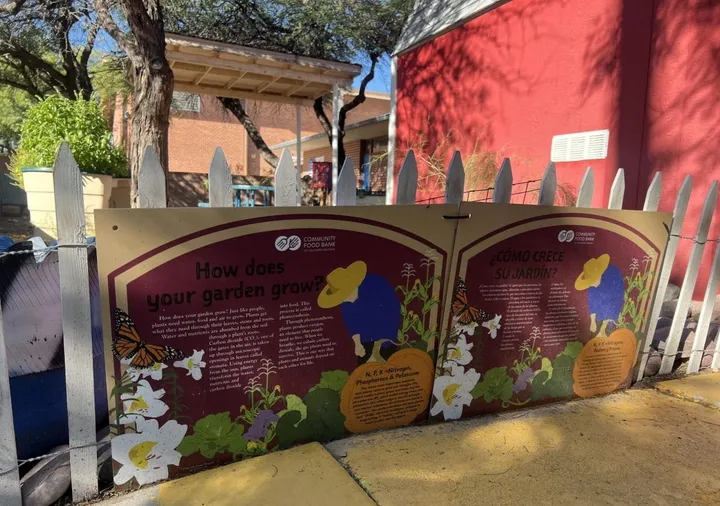Tensions flare at regents meeting as UA community protests DEI rollbacks
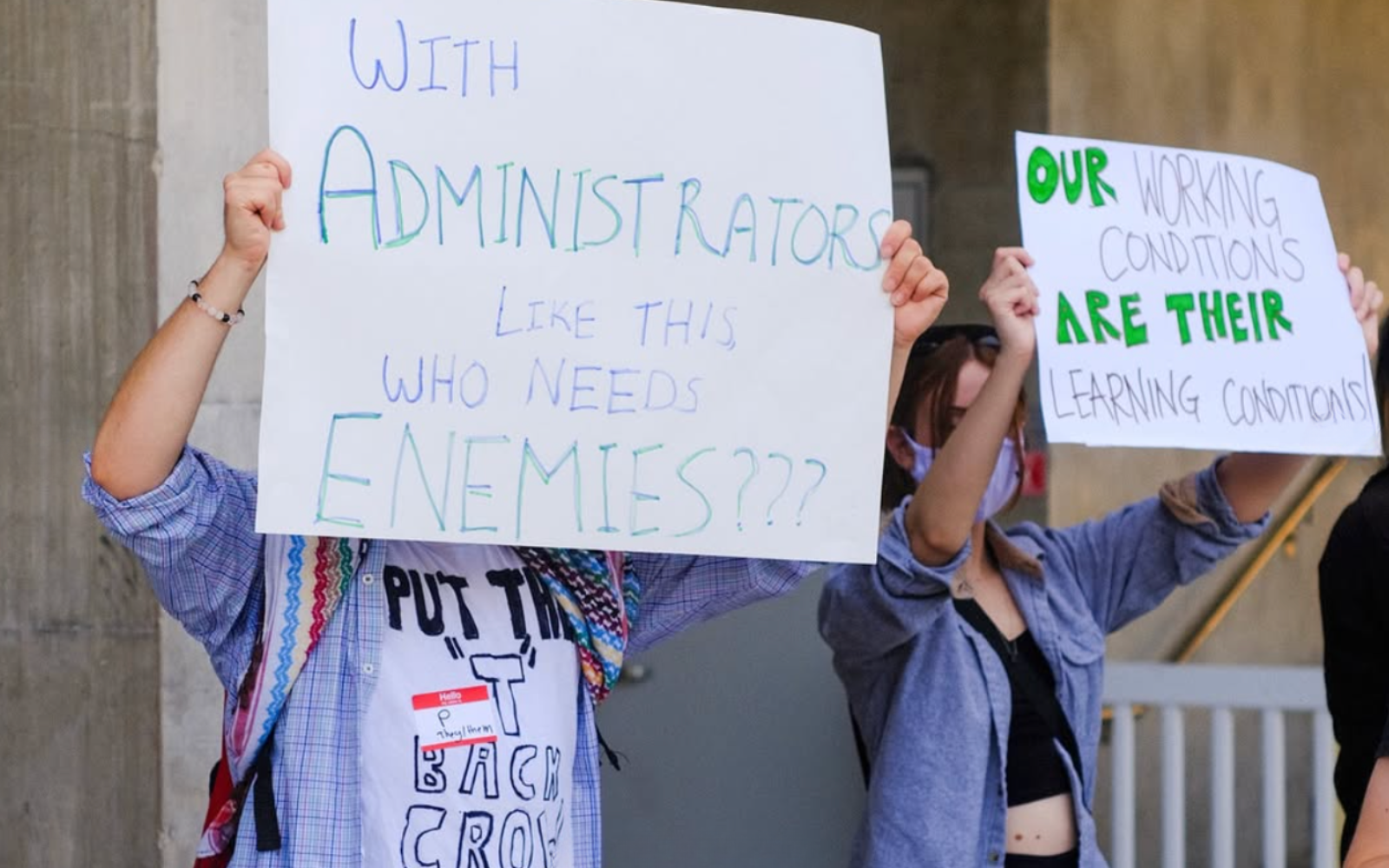
Tensions erupted at a Thursday Arizona Board of Regents meeting as students, faculty and labor groups protested cuts to diversity programs, prompting the board chair to threaten a student with arrest and revealing deep divisions between leadership and the campus.
United Campus Workers Arizona organized a rally before the meeting, with students, staff and community members gathering outside the Optical Sciences Building to protest the consolidation of Cultural Resource Centers and a vote by regents on the removal of DEI language from university documents.
Last month, days after graduation festivities wrapped up, UA officials announced that the school’s cultural resource centers would be consolidated, with six of the seven housed under a new Student Culture and Engagement Hub. The seventh, Native American Student Affairs, will be integrated into the Office of Native American Initiatives.
Several of the protesters took their message straight to the source, with more than a dozen people lining up to address President Suresh Garimella and regents during the meeting’s public comment portion.
Student senator and UA senior Eddie Barron said that the move to combine the centers is not a consolidation, but an erasure.
“These cultural centers serve 28,000 students. Each one is existing for a distinct purpose. They are tailored to the different histories, identities and lived experiences,” he said. “These spaces are not interchangeable. They are not redundant. These spaces are lifelines.”
He asked university administration and regents to consider the message behind their decision and the legacy they’ll be leaving behind.
“You've chosen to not fight for us, and that choice won't be forgotten. This wave of fear, censorship and political pressure, it will pass … But what we won't forget is how… this university chose to act when it mattered the most,” Barron said. “When students, especially students of color, queer students, first-gen students and workers were made to feel unsafe, unwelcome and invisible.”
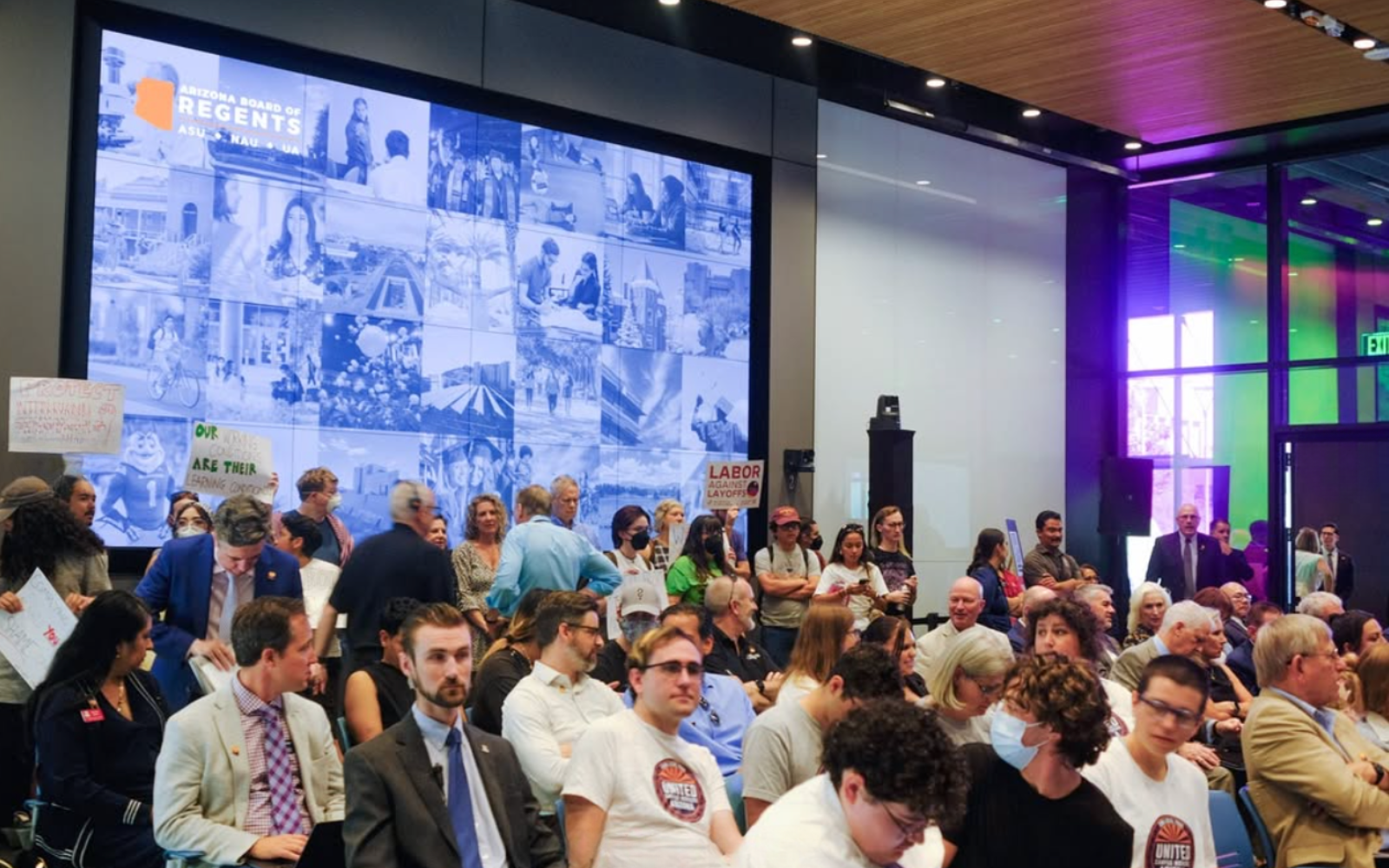
Joshua Liberman, a Ph.D. student in UA’s College of Optical Sciences and a member of United Campus Workers Arizona and the UA Resist Coalition, said he participated in a focus group for graduate students, where they were told their views are essential for the university's upcoming initiatives.
He said the student participants urged the UA to support their marginalized peers, but school officials ended up doing the opposite.
“President Garimella, you lied to us,” Liberman said. “Community, ambition, this is what makes the university distinctive, and this is what you have stripped away.”
Associate Professor Anna Cooper said students are facing a mental health crisis, and the university either doesn't grasp its severity or doesn't care.
“There is rampant food and housing insecurity. Students are frightened that their academic programs and their funding sources may disappear, and they're frightened about arrests and deportations,” Cooper said. “And by frightened, I mean so chronically fearful that they are struggling to get through daily life.”
She also criticized the university’s apparent disregard for students and its lack of transparency in responding to federal developments.
“There has been no indication that you would stand up to protect programs that could be construed as DEI-related or fight for federal funding, just absolute crickets in the face of all the existential threats that the university and our students face right now,” Cooper said.
The UA quietly removed diversity, equity and inclusion language from some of its public materials several months ago in response to a Jan. 20 executive order from President Donald Trump directing government agencies to end DEI programs or face funding cuts.
The UA wasn’t the only university facing criticism during the meeting. Arizona State University student Alberto Plantillas, a member of the Arizona Students' Association and the Graduate Student Government, called out ASU for its lack of protection for international students.
“The federal government just arrested a fourth-grade child. They will not flinch in arresting a student on this campus,” he said. “It's not the universities that are protecting international and undocumented students. It is the nonprofits that actually cover their legal counsel expenses.”
Drawing on his upbringing in rural Yuma County near the border, Plantillas compared the heavy policing of border towns to recent campus developments.
“Border towns are the most militarized parts of this country. Why are we choosing to militarize our universities in a similar manner?” Plantillas said.
Francisco Burke, a first-generation Latino and transgender UA student, spoke about his work with the cultural resource centers and the impact of DEI rollbacks. He shared his experiences of being belittled and ignored by faculty and the university community, saying that the stripping of DEI policies and the removal of the centers will affect many more students across the board.
“If you had the decency and respect of democracy to truly allow student voices to be represented, you would know the true loss of the Cultural Resource Center has made on the directors and for all students,” he said, addressing Garimella.
Burke was active in the Women and Gender Resource Center, which recently saw its director dismissed. He also addressed Garimella, asking the president about the policies he’s enacting.
“Did you truly think… with the world watching our Research 1 institution, we will not see your transparent disregard for democracy?” Burke asked.
The Carnegie Classification of Institutions of Higher Education defines a Research 1 institution as a university that demonstrates the highest level of research activity.
Board Chair Cecilia Mata repeatedly asked Burke to conclude his comments after he reached the end of the two-minute speaking limit. When he continued to talk, Mata threatened to have him removed and potentially arrested for interference with the peaceful conduct of an educational institution.
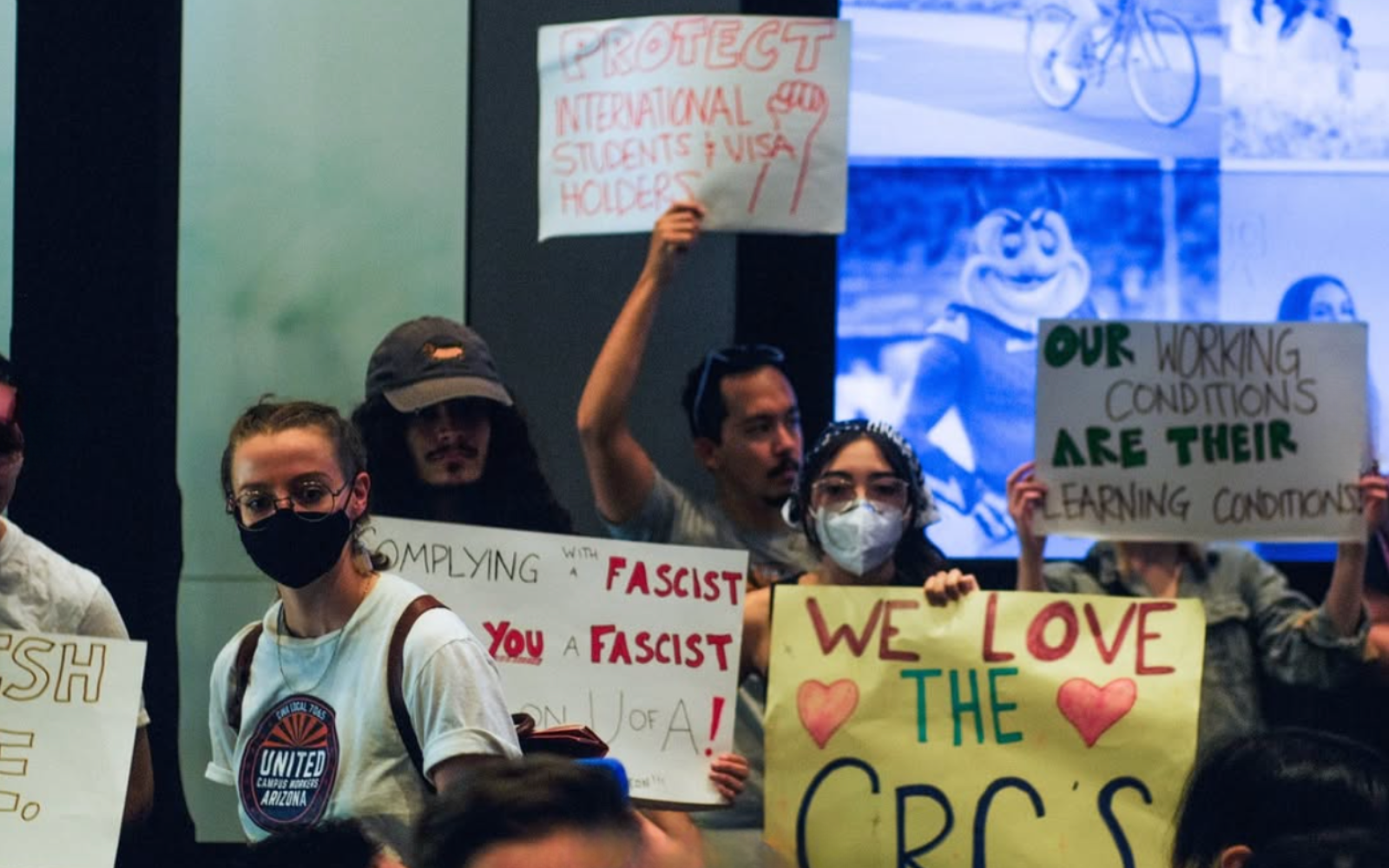
Burke eventually left the podium amid boos from the audience.
As students and faculty denounced what they described as a disregard for the democratic process, Garimella maintained that he represents “a very strong leadership team.”
Vice President for Enrollment Management Kristina Wong Davis pointed to a recent nationwide decline in international students that she said may hinder universities in meeting their goals.
“This fierce competition is exacerbated by the fact that many institutions who are seeing a potential decline in international graduate students are now turning to increasing target goals for the recruitment and enrollment of domestic undergraduate students,” she said.
Davis also emphasized the importance of paying close attention to changes and decisions occurring at the national level regarding federal need-based funding, which she said is essential for low-income students.
Jenny Lee, vice president and dean of international education, highlighted the difficulties international students are experiencing and ways the university is working to help them address these issues.
Potential solutions include overseas “microsites” for students unable to attend in person, as well as piloting a London-based site of Arizona Online for students who have been denied U.S. visas.
Provost Patricia Prelock, who arrived on campus last month, said that the UA has completed a holistic overview of all its academic programs, which will be used to help determine which strategic investments can be made.
Regents also approved the removal of references to diversity, inclusion and affirmative action from several board policies. First introduced at their April meeting, the measure was included in Thursday’s consent agenda and passed without further discussion.
Emma LaPointe is a journalism, political science and German Studies major at the University of Arizona and Tucson Spotlight intern. Contact her at emma.m.lapointe@gmail.com.
Tucson Spotlight is a community-based newsroom that provides paid opportunities for students and rising journalists in Southern Arizona. Please support our work with a paid subscription.

